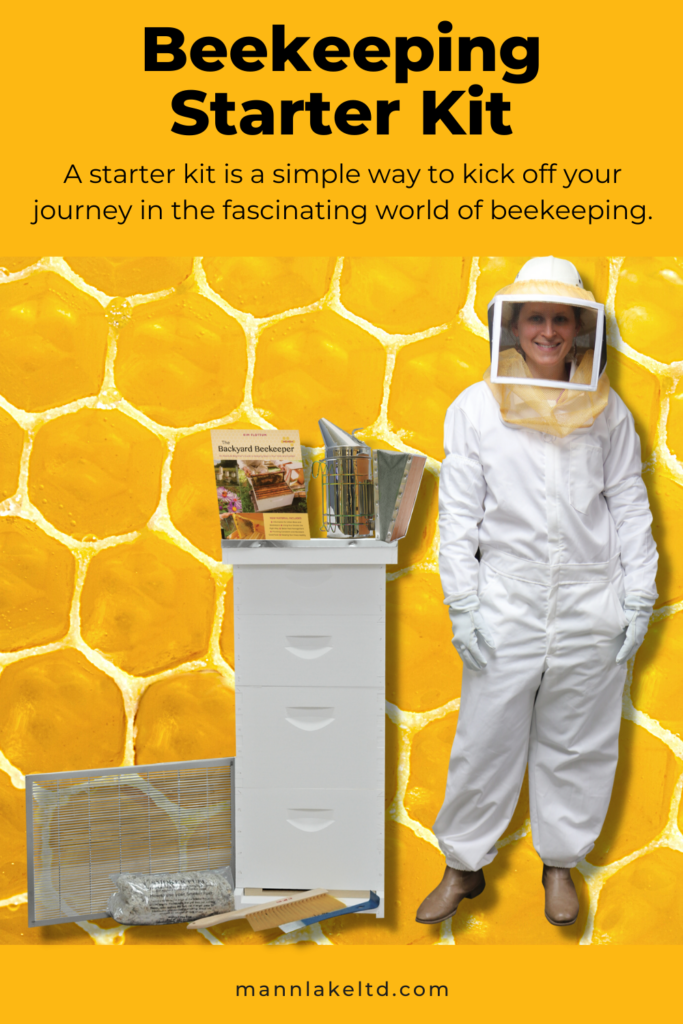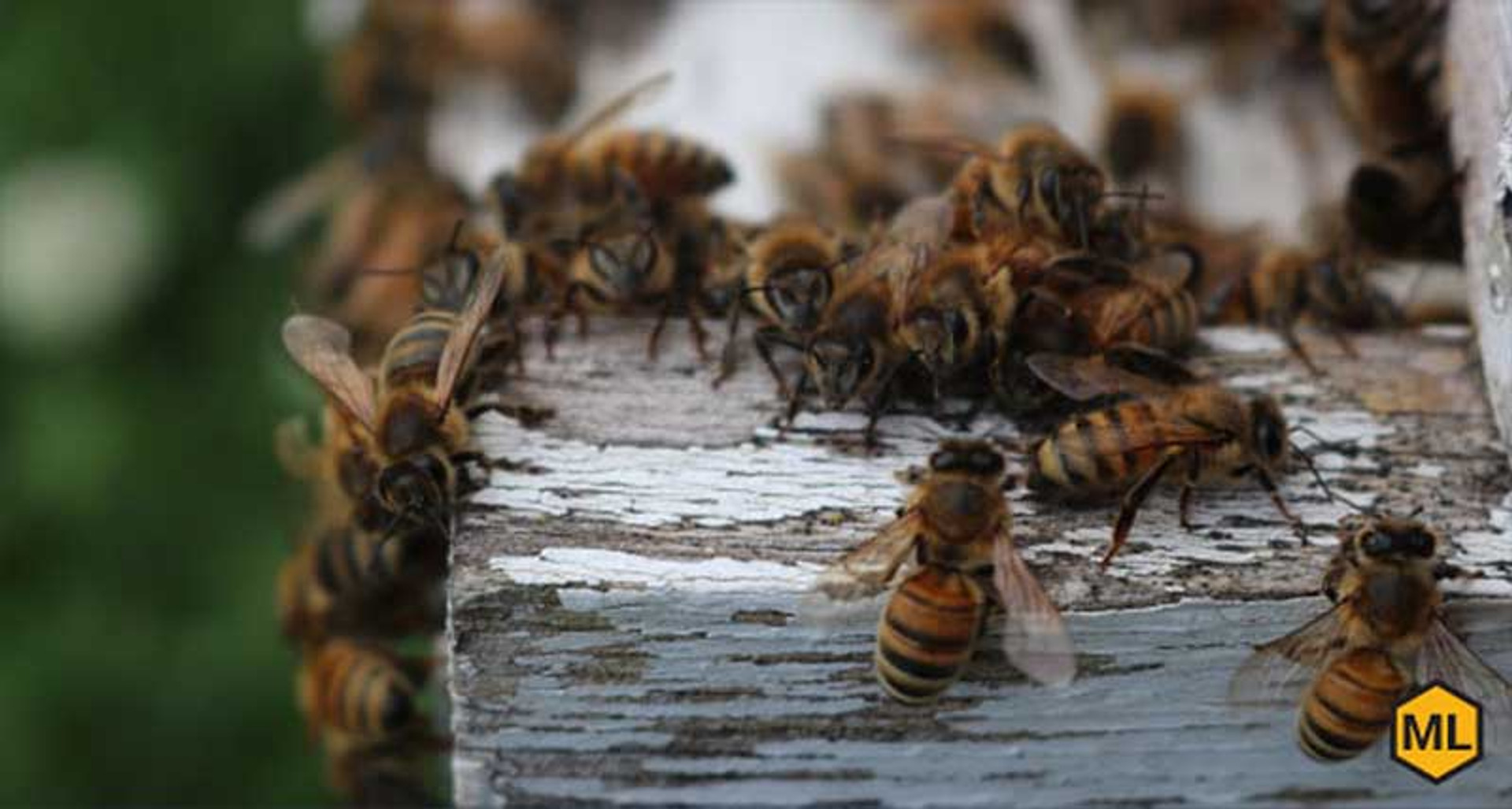The Main Threats To Honey Bees
The life of a honey bee is pretty straightforward. The queen lays eggs and keeps the hive productive. Worker bees devote their days to collecting resources, making honey, and caring for the hive. Meanwhile, drones live to mate with another queen and keep the honey bee population booming.
Despite this hard work, honey bee populations face some severe threats in the world. From climate change to disease, pesticides, and habitat loss, bees need our help more than ever to restore their place in the ecosystem.
Keeping bees safe from these dangers allows them to continue to work hard maintaining their hives, pollinating our plants, and benefiting the overall environment. The good news is we can help save the bee populations by learning more about these threats and the changes we can make to prevent them.
How Do Bees Impact Human Lives?
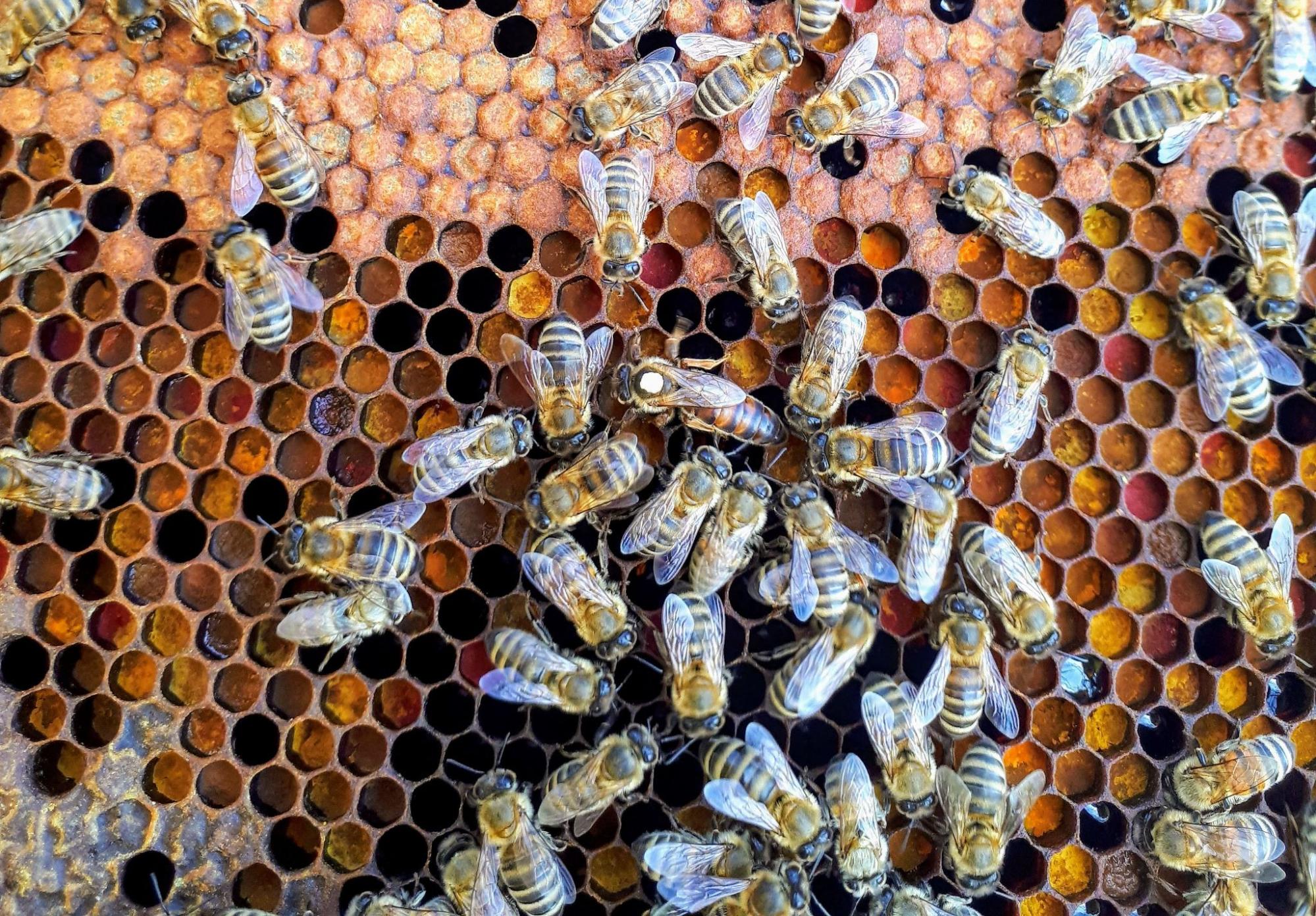
Bees are responsible for pollinating one-third of the world’s food crops. They help pollinate other plants and trees that grow fruits and vegetables and many other things we rely on, like coffee, nuts, seeds, fibers, hay, and more. Bees play a significant role in the success of our food supply, and they even pollinate plants that grow for medicinal purposes. What can’t bees do?
Without enough bees to pollinate plants and trees, this part of the ecosystem will also decline. Animals will be impacted as the threats to bees become more prevalent. For animals that are herbivores, bees play a vital role in their health and survival. Most carnivorous animals eat herbivores, so as their prey declines, they will, too.
From humans to plants and animals, bees are one of the most important creatures in our ecosystem. Here are the significant threats to bees that need our immediate addressing:
Climate Change
Climate change affects seasons, environments, and all the creatures living within them—including flowering plants and their pollinators. Temperature changes cause plants to migrate north toward cooler temperatures.
Problems occur when honey bees and other native pollinators don’t move in sync with these plants. Honey bees rely on these plants for pollen and nectar, while these plants rely on honey bees to spread their pollen and help them reproduce. Without this balance, both populations suffer.
As temperatures change, trees and other plants may bloom later in the season when the bees rely on their food sources at the same time each year. If the blooms occur and the bees aren’t there to forage, they miss out on valuable food sources to bring back to the colony.
Droughts associated with climate change can also reduce the availability of trees, plants, and flowers where bees can forage. In extreme weather situations, the quality of nectar and pollen may be impacted by temperatures, unruly storms, and other factors.
Habitat Loss and Degradation
Poorer habitat quality and the loss of pollinator habitats are two more of the main threats to honey bees. Commercial agriculture, urban and suburban expansion, and other development projects have led to a severe destruction of natural plant life around the world.
This leaves honey and wild bees with fewer sources of food and water, as well as fewer safe spaces to make their hives.
Habitat fragmentation occurs when large areas of habitat are split into separate regions, typically for urbanization purposes. Habitat fragmentation disrupts the natural ecosystems in the area and impairs global biodiversity. Unfortunately, bee species are often the victims of habitat fragmentation as their natural habitats are turned into highways, the development of apartments and homes, industrial areas, and more.
Fortunately, you can help honey bees deal with this threat by providing safe and abundant resources for your local bee species. Maintaining a bee-friendly garden or even keeping your own honey bees in a hive are great ways to create a safe environment for honey bees, solitary bees, or any other bee species in your area.
Diseases, Parasites, and Pests
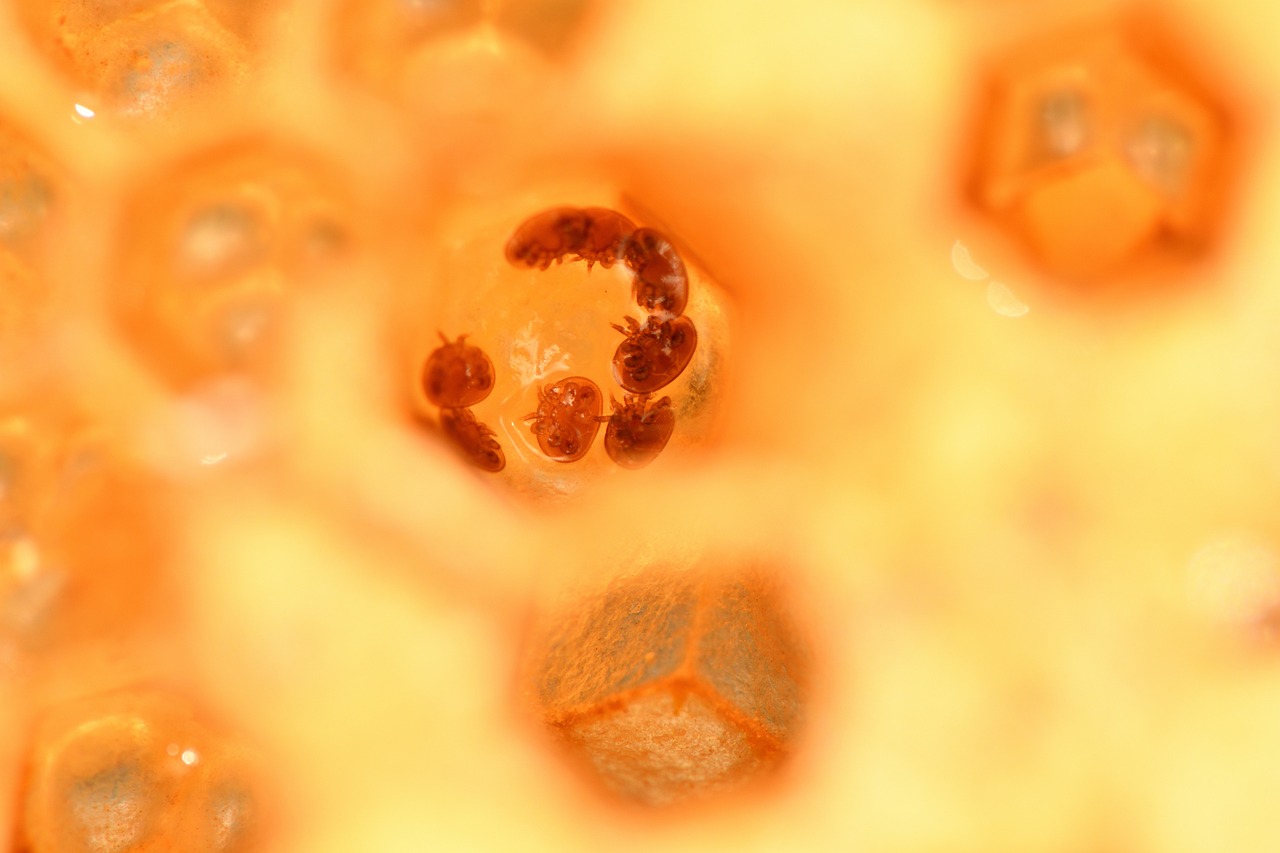
Quite a few diseases and parasites plague bee populations. It’s crucial for beekeepers to identify and treat any issues within the beehive promptly. Proactive measures are fundamental in safeguarding colony health and thwarting the potential devastation of a hive.
Common parasites in honey bees include Varroa mites, which pose a threat to nearly every Western honey bee species today. Varroa mites weaken the hive by feeding and reproducing on the larvae of developing brood, which transmits a virus known as the Varroa destructor and puts the hive at a significant disadvantage.
Other parasites, diseases, and pests that pose serious threats to bees include tracheal mites, hive beetles, sacbrood, Nosema, and wax moths. American Foulbrood (AFB) is a contagious bacterial disease that can take out entire colonies of bees.
Natural enemies like wasps, dragonflies, and praying mantises will also prey on adult honey bees. In the hive, pests, including hive beetles, wax moths, and even robber bees, can come in and wipe out a weaker hive at a vulnerable time.
Beekeepers can take steps to proactively keep pests out of their hives to protect the bees. Ensure the hive has enough guard bees to protect the entrance and that the hive entrance is small enough to deter any large critters from entering.
The Use of Pesticides
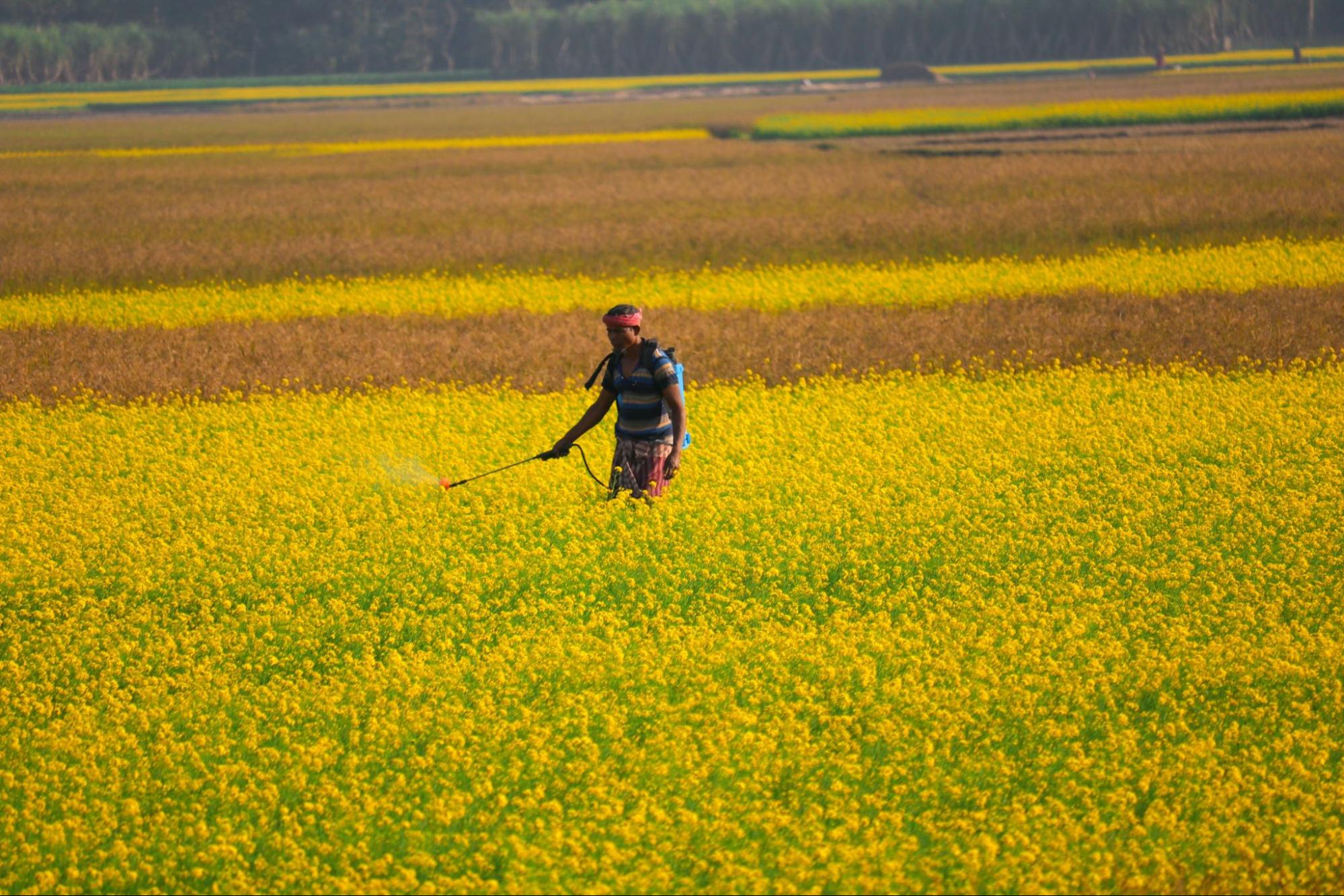
Pesticides can effectively keep bugs away from gardens and crop fields. Unfortunately, this also works against your garden’s most beneficial visitors.
Pesticides—especially the kind that lingers on plants and in the soil—act as poisons that contaminate the pollen that honey bees collect from your garden to feed the rest of their hive. Even if this contamination is nonlethal, pesticide exposure can still negatively affect any bee species’ ability to forage for food, defend their colony, and fight off diseases.
Exposure to pesticides can impair honey and bumble bees’ ability to navigate and reproduce. They can also threaten solitary bees' ability to reproduce any brood. In the US, some states have passed bills that restrict the use of pesticides that are harmful to bees. While this is a great start, many commercial, industrial, and residential areas use pesticides regularly.
Not only do these chemicals harm bees, but they also remove essential resources from local plants and flowers that are critical for bees’ honey production. Did you know that 90% of pollen samples from bee hives in agricultural areas are contaminated with at least one pesticide? Bees are paying the ultimate price so companies can use these dangerous chemicals.
To avoid using toxic pesticides in your garden, try opting for organic herbicides or other natural garden solutions that are safe for your plants and insect pollinators. When you do apply pesticides to your plants, be sure to do so in the early morning or later at night after the bees are done foraging for the day. Pledge your support for the reduction or removal of pesticides by calling your local representatives and raising awareness around the issue.
Beekeepers’ Management and Expertise
Regardless of bee species, it’s the primary job of beekeepers to protect the productivity and welfare of their colony.
To avoid contact with pesticides, hives should be placed at safe distances from intensive agriculture treatment sites or areas that are known for using any kind of pesticides or insecticides. Bees are known to be able to fly up to five miles away from the hive to forage for nectar, pollen, and water, so your hive placement options are much larger than you realize.
Many colonies have issues with parasites and diseases, and it is the beekeeper’s job to notice any changes in the colony during regular hive inspections. You should always be on the lookout for the existence of pests in the hive or abnormal brood patterns (typically an indication of Varroa mites).
Keep an eye on the location of any queen bees in your hives, and ensure that their brood patterns and development are normal.
Join Us in the Fight to Save the Bees!
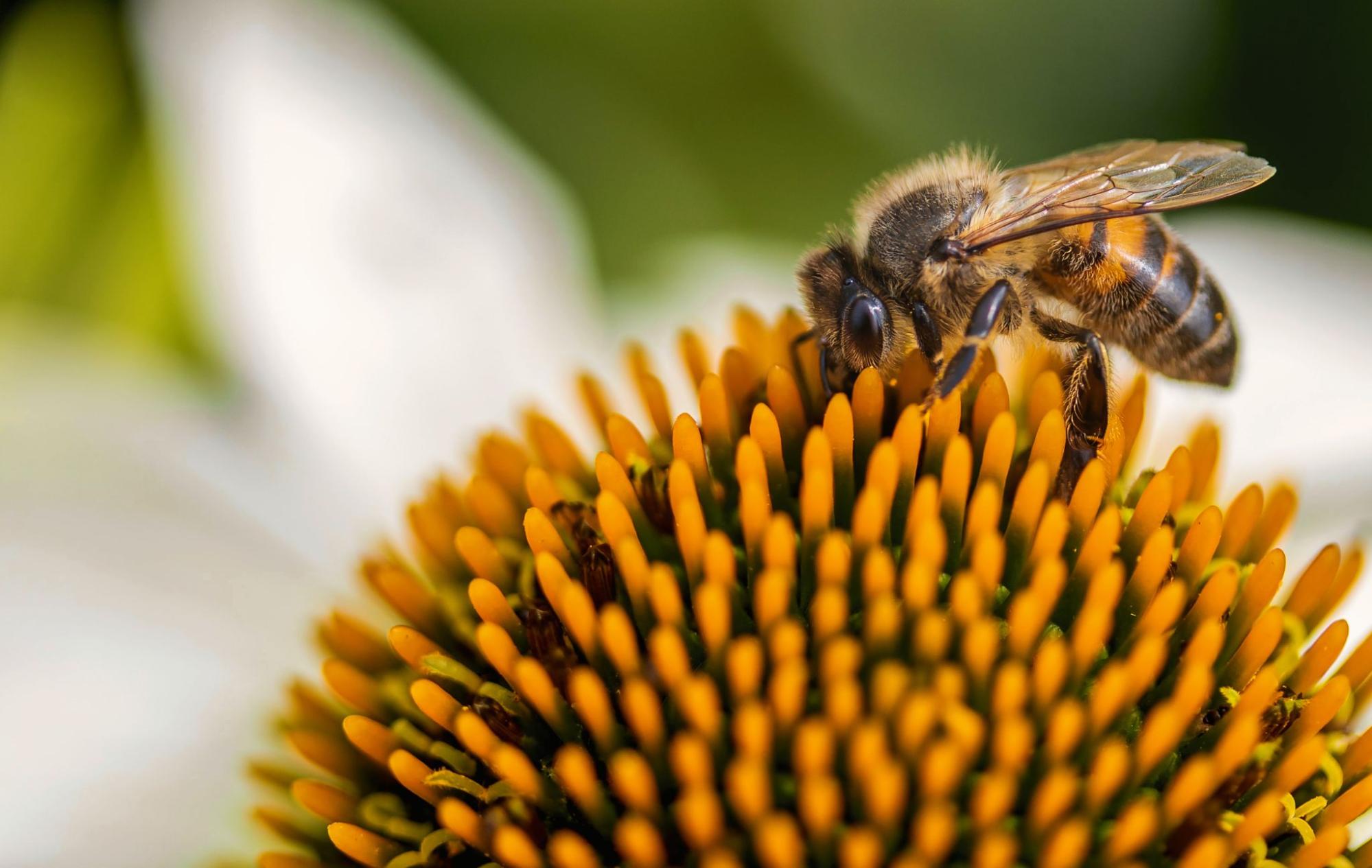
Times are tough for bee species worldwide. The ever-changing climate situation poses many threats to bees. At the same time, the use of pesticides continues to be a concern for beekeepers who are in close proximity to large agricultural sites and industrial areas.
Whether you’re concerned about the health and well-being of your colony or you want to pitch in to help save the bees, Mann Lake is here to support your efforts. Explore our blog for educational sources, or learn something new in our beekeeping video library. Together, we can eliminate these dangerous threats to bees and ensure the survival and well-being of our favorite buzzing creatures.
